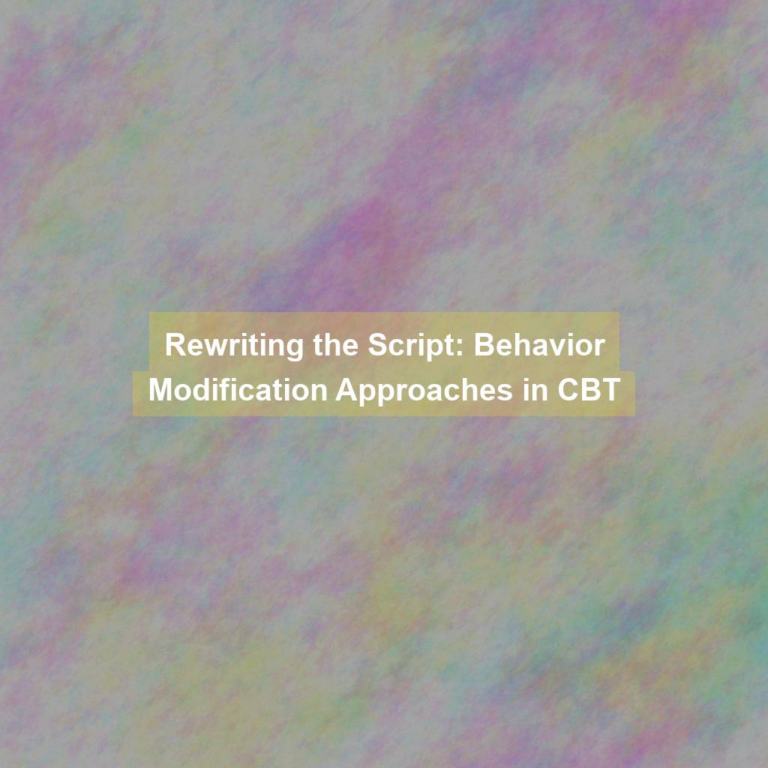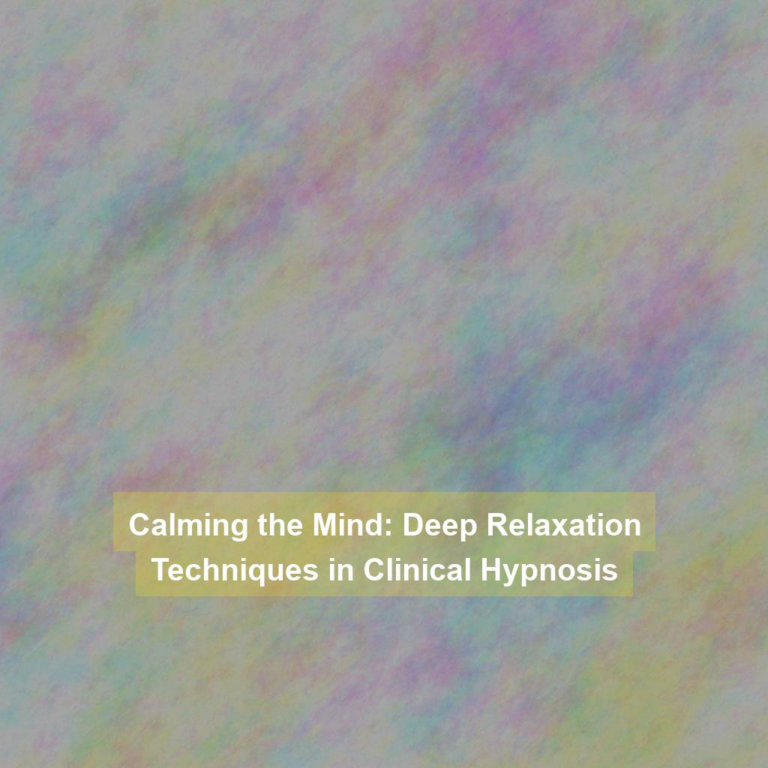Have you ever found yourself intrigued by the idea of accessing the deeper realms of your mind to promote healing and well-being? Hypnotherapy, a practice that has been shrouded in mystique and skepticism, is gaining recognition for its potential in mind-body therapies.
From its historical roots to the modern scientific understanding of the subconscious mind, the exploration of hypnotherapy’s power is a fascinating journey that offers insights into the untapped potential of the human mind.
As you delve into the intricacies of hypnotherapy, you’ll discover the profound impact it can have on unlocking the mind’s capacity for healing and transformation.
The History of Hypnotherapy
Exploring the history of hypnotherapy reveals a rich and complex evolution of this mind-body therapy. The practice of hypnosis dates back to ancient times, with evidence of hypnotic-like techniques found in the records of ancient civilizations such as the Egyptians, Greeks, and Romans.
However, it wasn’t until the 18th century that hypnosis began to be formally recognized and studied. Franz Mesmer, an Austrian physician, is often credited as one of the pioneers in the modern understanding of hypnosis. He developed the concept of ‘animal magnetism,’ which laid the groundwork for the later development of hypnotherapy.
In the 19th century, James Braid, a Scottish surgeon, coined the term ‘hypnosis’ and dissociated it from mesmerism, establishing it as a unique psychological phenomenon. Throughout the 20th century, hypnotherapy gained recognition as a legitimate therapeutic technique, particularly in the fields of psychology and psychiatry.
Today, hypnotherapy continues to evolve, with ongoing research and advancements in understanding its potential applications in treating various mental and physical health conditions.
Understanding the Subconscious Mind
Understanding the subconscious mind involves delving into the hidden processes that influence our thoughts, emotions, and behaviors without our conscious awareness. Your subconscious mind is like a vast reservoir of information and experiences that shape your perceptions and reactions to the world around you. It’s the part of your mind that stores memories, beliefs, and automatic responses developed over time. While your conscious mind is analytical and rational, your subconscious mind operates on a more instinctual and emotional level, often guiding your behavior without you even realizing it.
Exploring the depths of your subconscious mind can reveal the underlying reasons for certain patterns in your life, such as recurring thoughts, fears, or habits. By understanding these subconscious influences, you can gain insight into your motivations and make positive changes in your life.
Hypnotherapy taps into the power of the subconscious mind, helping you access and reframe deep-seated beliefs and behaviors that may be holding you back. Through this process, you can harness the potential of your subconscious mind to promote healing, personal growth, and holistic well-being.
The Science Behind Hypnotherapy
Your journey into the world of hypnotherapy will now take you into the realm of scientific understanding behind this powerful technique for accessing and reshaping the subconscious mind.
The science behind hypnotherapy is rooted in the concept of neuroplasticity, which refers to the brain’s ability to reorganize itself by forming new neural connections. Studies using neuroimaging techniques, such as functional magnetic resonance imaging (fMRI), have shown that hypnosis can lead to specific changes in brain activity. These changes indicate an increased ability to focus attention, as well as alterations in the way the brain processes information.
Additionally, research has demonstrated that during hypnosis, the brain exhibits decreased activity in the default mode network, which is associated with mind-wandering and self-referential thoughts.
Furthermore, neuroscientists have found that hypnosis can influence the levels of neurotransmitters and hormones in the brain, including dopamine and serotonin, which play crucial roles in regulating mood, cognition, and behavior. These scientific insights provide compelling evidence for the effectiveness of hypnotherapy in harnessing the brain’s potential for transformation and healing.
Applications of Hypnotherapy in Healing
The applications of hypnotherapy in healing cover a wide range of physical, emotional, and psychological conditions, offering a non-invasive and complementary approach to traditional medical treatments.
In the realm of physical health, hypnotherapy has been utilized to alleviate chronic pain, manage symptoms of irritable bowel syndrome, and even assist in the treatment of dermatological conditions such as eczema and psoriasis.
When it comes to emotional well-being, hypnotherapy has shown promise in addressing anxiety, depression, and phobias. Furthermore, in the field of psychology, hypnotherapy has been used to aid in the management of stress, improve sleep patterns, and enhance overall mental resilience.
Additionally, it has been integrated into the treatment of addiction, helping individuals overcome substance abuse and behavioral dependencies. The versatility of hypnotherapy in addressing such a wide array of conditions highlights its potential as a valuable tool in the healing process.
As further research continues to explore its efficacy, hypnotherapy stands as a promising avenue for holistic healing.
Exploring the Potential of Self-Hypnosis
Having witnessed the diverse applications of hypnotherapy in various aspects of healing, it’s now imperative to investigate the potential of self-hypnosis as a complementary practice. Self-hypnosis empowers you to tap into your subconscious mind, allowing for self-improvement and personal growth. By inducing a state of deep relaxation and heightened focus, you can access the inner resources needed to address challenges and achieve your goals.
Self-hypnosis can be a valuable tool for managing stress, anxiety, and even chronic pain. By guiding yourself into a trance-like state, you can reframe negative thought patterns, instill positive affirmations, and visualize desired outcomes. This can lead to a profound sense of calm and resilience in the face of adversity.
Furthermore, self-hypnosis can enhance learning and performance, making it beneficial for athletes, students, and professionals alike. Whether you seek to boost confidence, improve concentration, or unleash creativity, self-hypnosis can unlock your full potential.
Conclusion
In conclusion, hypnotherapy has a rich history and has been shown to tap into the power of the subconscious mind for healing and personal growth.
The science behind hypnotherapy is still being explored, but its potential in mind-body therapies is promising.
Whether used in a therapeutic setting or through self-hypnosis, the practice of hypnotherapy has the potential to unlock the mind and promote overall well-being.







